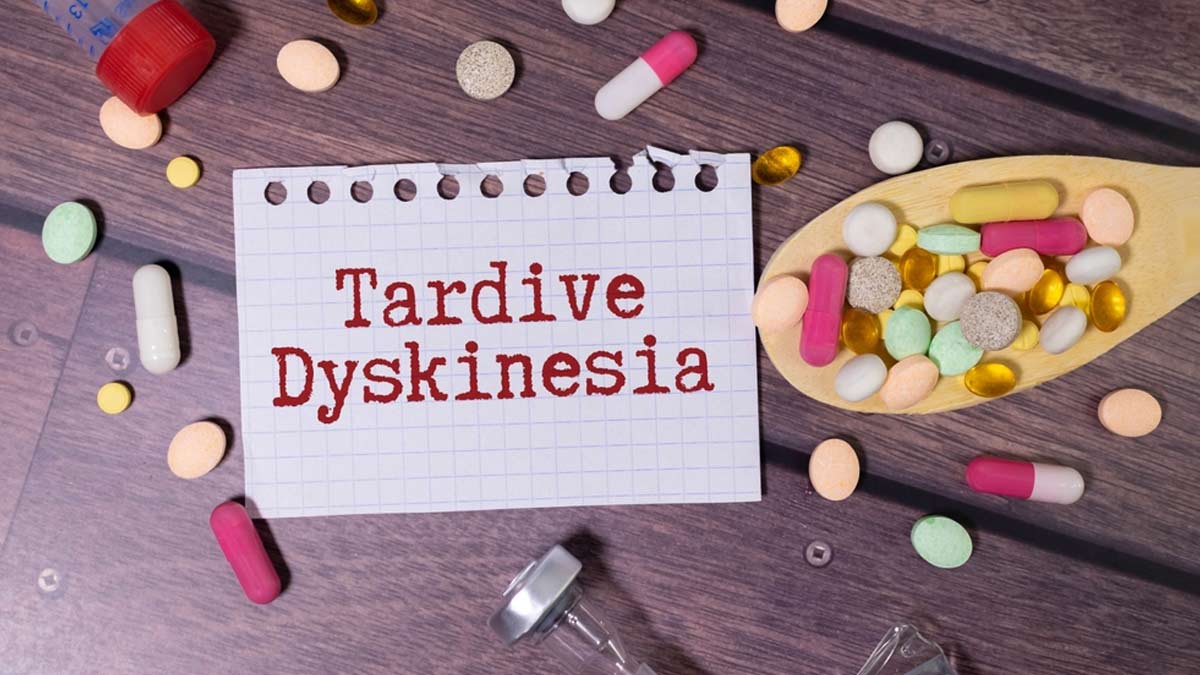
Have you ever noticed unusual, involuntary movements in your face, tongue, or limbs? You may even find your tongue or lips moving without your intention. These symptoms could be signs of Tardive Dyskinesia (TD), a movement disorder often caused by long-term use of certain medications, particularly antipsychotics. TD can be distressing and may interfere with your daily life, making it feel like your body is working against you. In this article, we list tips to help you manage this condition and feel more in control.
Table of Content:-
According to a 2019 study, Tardive dyskinesia is a movement disorder marked by involuntary, irregular movements, primarily affecting the tongue, lips, jaw, and face, as well as occasionally the areas around the eyes. In some instances, individuals may also experience abnormal movements in the trunk and limbs.
Tips To Manage Tardive Dyskinesia
1. Consider Medication Adjustments

Did you know certain medications can exacerbate TD symptoms? Your doctor may recommend adjusting your dosage or switching to alternative medications with a lower risk of causing TD. Some newer medications, such as certain atypical antipsychotics, may have a lower risk of inducing TD, as stated in the StatPearls. Therefore, discuss these options with your healthcare provider to find a balance between managing your primary condition and minimising TD symptoms.
2. Engage in Regular Physical Activity
You should not neglect the importance of regular exercise as it can help in managing TD symptoms by promoting overall physical and mental health. Activities like walking, swimming, or yoga can improve muscle control, flexibility, and coordination. Not only this, exercise also releases endorphins, which can boost mood and reduce the perception of involuntary movements.
Also Read: Periodic Limb Movement Disorder: Know Symptoms And Causes Of This Sleep Disorder
3. Practice Stress Relaxation Techniques

Stress and anxiety can exacerbate the symptoms of TD, making it important to find ways to relax and calm your mind. Techniques, such as deep breathing exercises, progressive muscle relaxation, and mindfulness meditation can help reduce stress levels and may reduce the severity of involuntary movements. Adding these practices into your daily routine can provide a sense of control over your body and mind.
4. Engage in Physical Therapy
Physical therapy can be beneficial in improving coordination and reducing the impact of involuntary movements. A physical therapist can design a personalised exercise program to enhance motor control, improve balance, and strengthen muscles affected by TD. Regular physical activity can also boost overall physical and mental well-being.
5. Maintain a Healthy Diet

Eating a balanced and nutritious diet is essential for overall health and well-being. Although there is no specific diet to treat tardive dyskinesia, consuming a variety of fruits, vegetables, whole grains, and lean proteins can help your body manage the symptoms. It is also important to stay well-hydrated for maintaining overall health."
Also Read: Study Reveals Link Between Brain Protein And Movement Disorder In Children
6. Use Assistive Devices
Depending on the severity of your symptoms, assistive devices can help improve your daily functioning. For example, specialised utensils or adaptive tools may make eating and other daily activities easier. Consult with an occupational therapist to explore devices that can enhance your quality of life.
7. Focus on Sleep Hygiene
Good sleep hygiene is essential for managing tardive dyskinesia. Aim for a consistent sleep schedule, create a relaxing bedtime routine, and ensure your sleep environment is comfortable and free of distractions. Adequate sleep can help reduce stress and improve overall physical and mental health.
8. Consult with Your Healthcare Provider
It is important to closely collaborate with your healthcare provider in managing TD. Openly discuss your symptoms with them and seek their advice on the best course of action. They may adjust your medication or prescribe new treatments specifically designed to address TD. Regular check-ups will help monitor your condition and make necessary adjustments to your treatment plan.
[Disclaimer: This article contains information for informational purposes only, hence, we advise you to consult your own professional if you are dealing with any health issues to avoid complications.]
Also watch this video
How we keep this article up to date:
We work with experts and keep a close eye on the latest in health and wellness. Whenever there is a new research or helpful information, we update our articles with accurate and useful advice.
Current Version